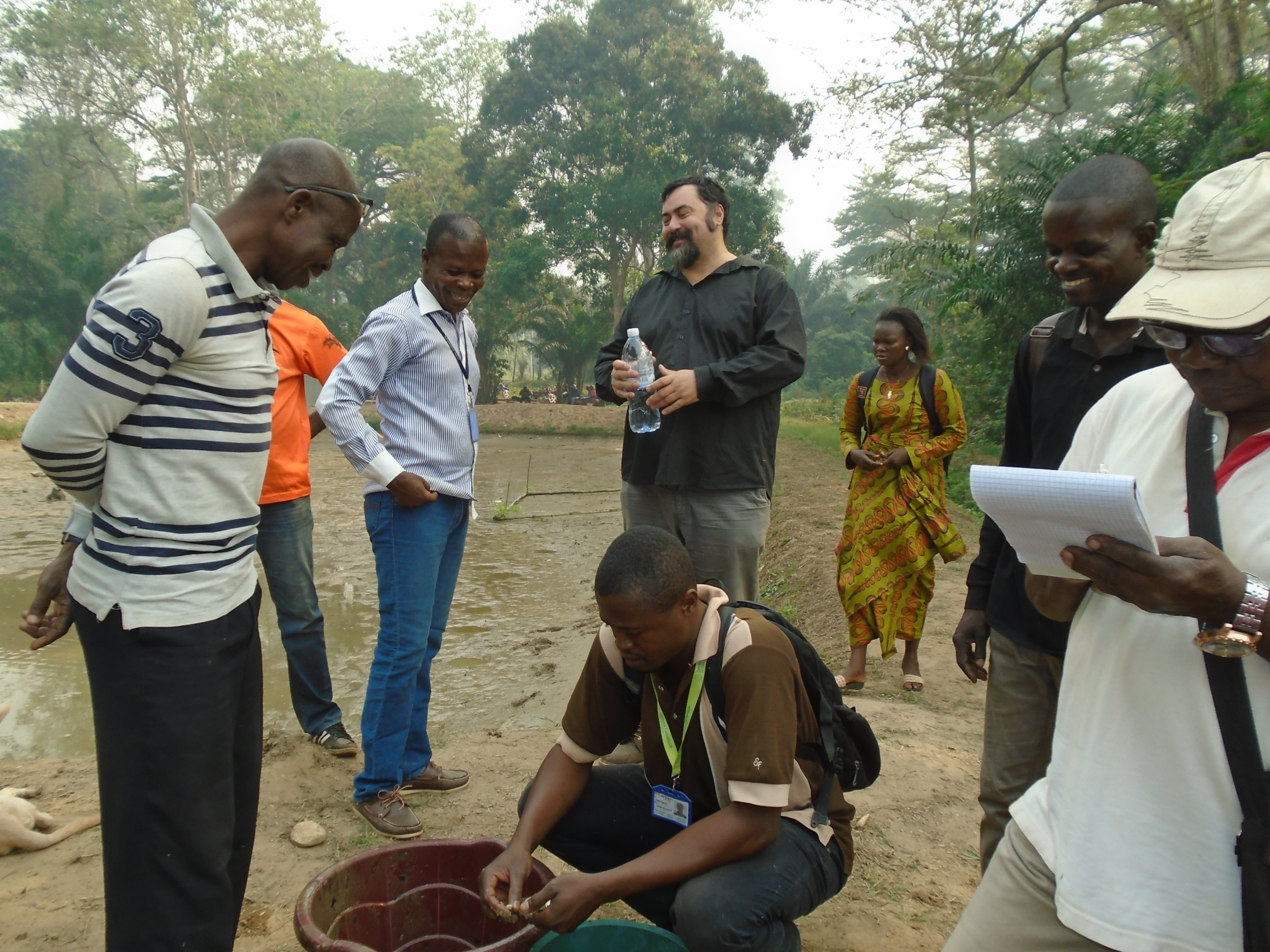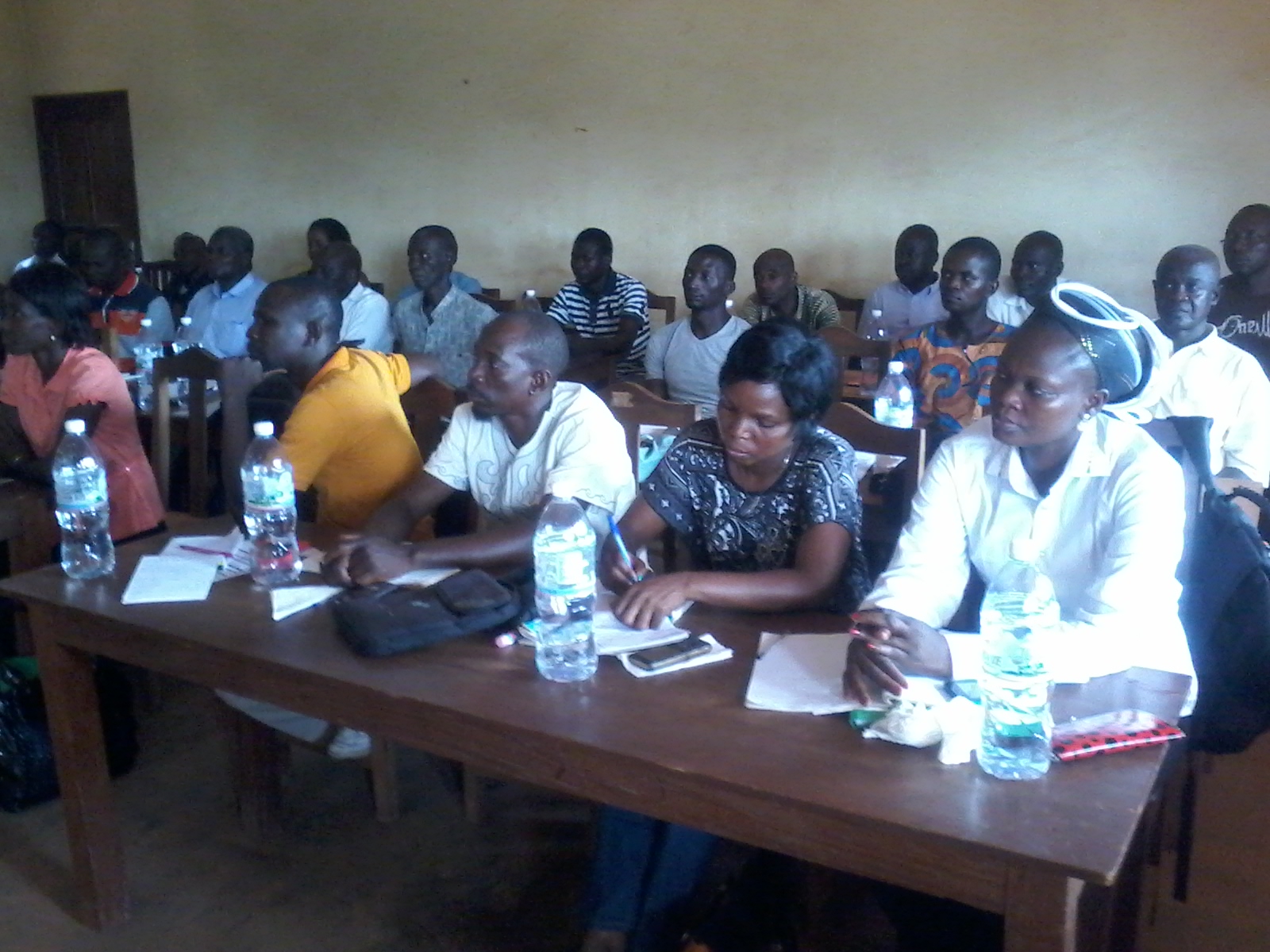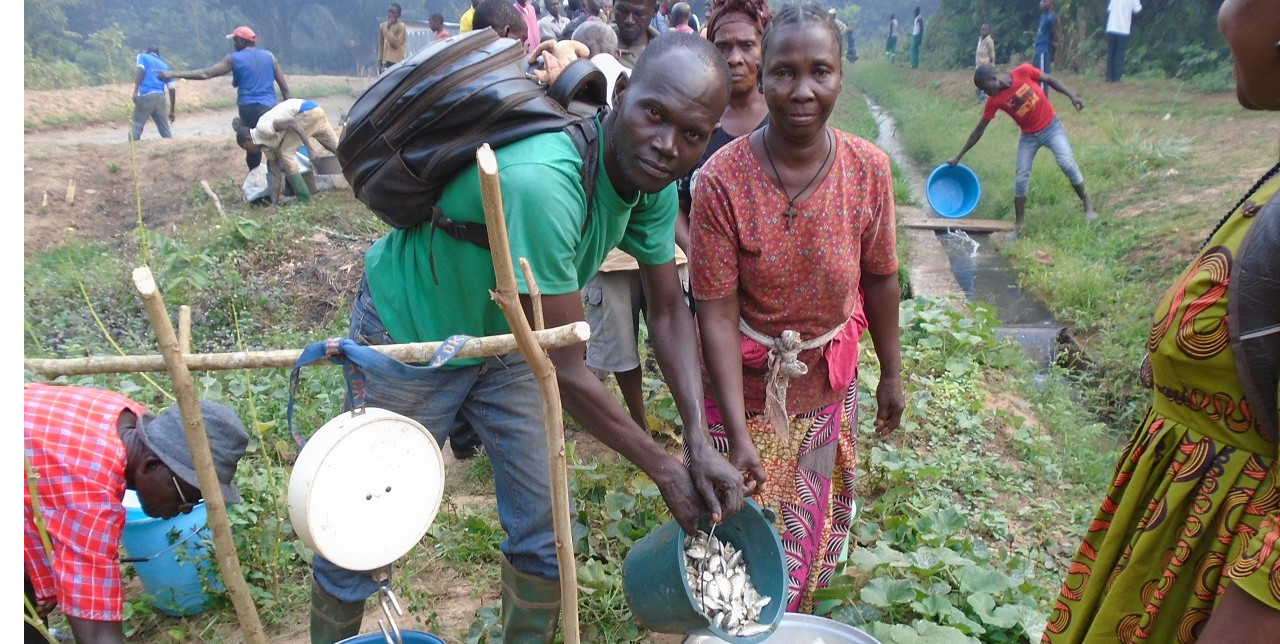04-03-2019 | di COOPI
CAR: how training can strengthen livestock breeding
Difficulties in training, support and organization are some of the main obstacles to livestock breeding sector in the Central African Republic. This is why, to stimulate rural growth, we are now carrying out the PARFEC project (Support for the relaunch of the urban and peri-urban breeding industry in the Central African Republic) financed by Bêkou Trust Fund of the European Union.
Before the military and political conflicts hit the country, the FNEC, the National Federation of Central African Breeders, was a beacon for most CAR rural areas and run a network of trainers, in charge of supporting livestock farmers. However, the federation has lost its crucial role to bring farmers together in recent years, due to the armed conflicts. Even more so, the Central African government, which had to oversee those networks, found it more and more difficult to play this role.
"To bridge this gap, it is essential to restore trust in the agricultural sector both in terms of support and productive assets. That is why we are carrying out the PARFEC project in collaboration with FNEC ," says Cyril Viron, COOPI project manager in CAR. He continues, “The project is part of a consortium and manages all stages of fish, poultry and livestock farming chain, from production to marketing activities, to boost the economic and organizational performance of small farms in the districts of Bangui and in the municipalities of Bimbo and Bégoua.”

First teaching session with trainers. Cyril Viron (at the centre), COOPI project manager in CAR.
Between May and November 2018, the PARFEC project, in collaboration with its local partner Central African Caritas, hired 12 trainers and 3 technicians.
Trainers, who were also agronomists, were supported by ministerial officials on topics related to local agricultural organisation, production techniques, social cohesion, monitoring and marketing support activities.
From January 2019, trainers, in turn, started teaching the project’s beneficiaries on how to improve their technical and operational management skills.

Second training session.
This "cascade" approach thus enabled networks of experts to train project professionals and manage their fields of expertise.
At the end of the project, FNEC will be in charge of this group of trainers - thanks to feed producing companies and shops activities supported by the project, the Federation will be able to continue supporting the networks of experts built up so far.
Around 1,000 professionals will be equipped with livestock kits to enable them to resume activities that have been interrupted and leave poverty and vulnerability behind.
FNEC training programme therefore aims to build job-oriented networks in the agricultural sector, to teach beneficiaries a real profession and help the country to stop relying primarily on food products, such as meat, produced by small livestock farms. In fact Bangui district is now facing an increasing demand for meat products given that transhumance circuits were interrupted by conflicts.
Building "breeding centres" is now becoming even more vital, which is why we are also focusing on this activity, so that beneficiaries can begin to save money and increase their economic and food resilience.
Thanks to the synergies built so far, FNEC will be able to strengthen its reputation and ensure the relaunch of small farms. According to Caritas Central African Republic, monitoring and following these networks are crucial activities to guarantee a support in the medium-long run, thus leaving a predominant context of emergency/post-emergency operations behind.




 Central African Republic
Central African Republic